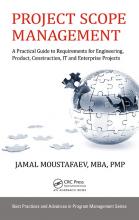Jamal’s Musings – Where to Find a Project Manager for Our Enterprise (Multidepartmental) Project?
Submitted by Jamal Moustafaev on Wed, 12/24/2014 - 05:19I once taught a one-day project management workshop for a group of executives of a large international bank. The people present in the room were the CEO, COO, CMO, CIO, VP of HR and the CFO. We started discussing how the projects that only ten years ago were pure IT initiatives now have grown and span across the entire organization and involved resources from every department. An interesting exchange took place between me and the CEO of the company:
CEO: Yes, all you are saying about the importance of project management is very interesting, but we have decided long ago that our organization simply can’t assign a project manager to run an enterprise project.
Me: How so?
CEO: Well, here is our logical chain of thought. The project manager must be a technical expert in the domain of his project. Our projects, as was mentioned earlier, span across multiple departments including, finance, accounting, payments, risk, HR, marketing, etc. Since we can’t find a person who would be an expert in all these domains (frankly, I don’t think such person even exists in the entire world), we can’t have a project manager assigned to the project. We will have to rely on the departments coordinating the activities among themselves …
Me: OK, I understand you reasoning … With you permission, can we look at this problem from a different perspective?
CEO: Sure!
Me: Do you think that the people sitting in this room are qualified to run your company?
CEO: (surprised) Of course! Every one of the executives present here has my full vote of confidence!
Me: Let us start with you then. What is your background?
CEO: Sales and marketing.
Me: Which implies you can’t be considered an expert in the areas of finance, accounting, payments, risk and IT, right? So, using your logic, how can you run the company if you are not an expert in all these areas?
CEO: But I have specialists in all those areas reporting to me and I rely on their expert opinions when making decisions …


